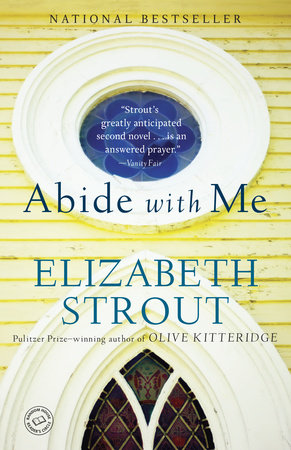When people “from away” learn I’m from Maine, most respond in one of two ways: they tell me they’ve never been here, but it’s high on their list, or they say they love my home state. More often than not, the latter group spent idyllic summers at sleepaway camps by the lake, peeped at the fall colors, or vacationed on the coast in high season when the nights settle in cool, lobster shells are soft, and the sun stays above the horizon well into the evening hours. And they are right; it’s glorious. What they’ve seen, however, is really just one small corner of a larger, more complex picture of Maine and its people.
My family has lived in New England for twelve generations, the last nine in Maine. Although I spent most of my working life in cities, I never shook the push-pull of this place, never completely slipped its tether. Like my ancestors, I grew up eating fish from Maine’s lakes and bays, potatoes and berries from its farms, rhubarb from the sunny patch by the stone wall; I drank its water and breathed its air. And so, no matter how far I travel or how long I’m gone, my home state is literally in my bones and will be until they’re settled in the frozen ground.
My first novel, The Northern Reach, is set in the fictional Downeast town of Wellbridge, a hardscrabble place that has little in common with the quaint, cutified villages that dot the tourist coast. Rather, I imagine Wellbridge as one of Maine’s many hard, unyielding towns that produce tough, darkly funny people, eking out a living, hand to mouth, day to day, enduring what would break others and sometimes breaks them. It’s long shadows, ever encroaching woods, peeling paint, stinking bait shacks, rusted log skidders, and endless winters under the white snow sky. This is the Maine I know, the place I come from.
Here are a few of my favorite books that convey the broader story of my home state:

Barkskins by Annie Proulx
The history of Maine comes as much from the woods as the sea, and this is the story of how European loggers claimed, and very nearly destroyed, its forests. Beginning when Maine was part of New France and spanning the next 300 years, Barkskins describes the wretched conditions in those early, excruciating years and offers an unflinching look at the origin story of interloping white settlers in the state and their place in the history of New England.

Nine Mile Bridge by Helen Hamlin
In 1937, Helen Leidy took a teaching position in a North Woods lumber camp near Churchill Lake, married a local game warden, Curly Hamlin, and moved with him to an isolated cabin in the deep woods, connected to the outside world by a single, vulnerable phone wire and accessible only by dog sled or snowshoe in winter. Her chatty, first-person account of the years in the woods is an intimate time capsule of daily life in the wilds of Aroostook County, on what was then the largest privately owned timber tract in the country.

Mill Town: Reckoning with What Remains by Kerri Arsenault
For all its natural beauty, sparkling air and crystal lakes, Maine has a long history of industrial pollution that went largely unchecked for decades. Paper and textile mills—once productive, now largely disused—still dot the landscape. A descendant of French-speaking Acadian immigrants who came to Maine to work the mills, Kerri Arsenault grew up in one of those towns and deftly weaves together the story of industrial abuse, of the people and the land, with the cultural history of her family in the part of the state called Cancer Valley. (If you’re interested in a fictional account of a dying Maine mill town, try Richard Russo’s Empire Falls.)

The Funeral Makers by Cathie Pelletier
Cathie Pelletier’s novel clatters through Maine’s northernmost county in a riot of dark hilarity and looming heartbreak, eavesdropping all the way. She fills the dead-end towns, rolling potato fields and murky woods of Aroostook County with the language of the plain-spoken, such as Old Man Gardener:
“I remember that puny little wife of his going around with a book with bird pictures in it. I could’ve told her in a flash which bird was which . . . I don’t like the way some city folks carry on. I don’t like it. And what’s more the birds don’t like it.”

The Guest Book by Sarah Blake
There is a perception that Maine’s summer people live gilded lives of ease and excess in their grand cottages on the coast, and though there is more than a grain of truth in that, it’s not the whole story. Life is never that simple. Sarah Blake’s gorgeous, chewy novel, as sprawling as the Milton family cottage on the private island they own, shows the dark side of privilege and its ripples across generations.

Abide with Me by Elizabeth Strout
There is a long Protestant tradition in Maine that goes back to the Pilgrims and Puritans of Massachusetts. In her second novel, Elizabeth Strout explores loss, grief and faith through a religious lens in the story of Tyler Caskey, a minister who “lived with his small daughter in a town up north near the Sabbanock River, up where the river is narrow and the winters used to be especially long.” I loved Strout’s Olive Kittredge books, but this one is my favorite. Taking on great issues amidst small-town concerns, it’s quietly powerful and ultimately uplifting.

Tinkers by Paul Harding
Paul Harding’s first novel won the Pulitzer Prize in 2010. Deeply evocative, beautifully written, and utterly heartbreaking, the book tells the story of an epileptic tinker and his clock-fixing son, as it meanders through time, from the son’s deathbed hallucinations back to his father’s days as a tinker—a salesman who traveled the back roads and woods of New England by wagon, winter and summer, selling and trading dry goods with farmers and hermits scattered in the wilderness.

‘Salem’s Lot by Stephen King
No list of Maine books is complete without The King. There are so many to choose from, but for me ‘Salem’s Lot is the best Maine book, diving deep into the insular and secretive way of life in small towns. When the vampires return, called by the dreadful Marsten House, the buried secrets, resentments and hatreds of the townsfolk make them easy pickings. And so the book offers a cautionary tale of what can happen when the aggrieved, made powerful by the vampire’s bite, get a bit of their own back. In harrowing fashion, King sets fire to the image of small towns as idyllic havens of benevolent neighborliness. Read it in daylight is my advice.
The post 8 Books That Show Maine in All of Its Complexity appeared first on Electric Literature.











